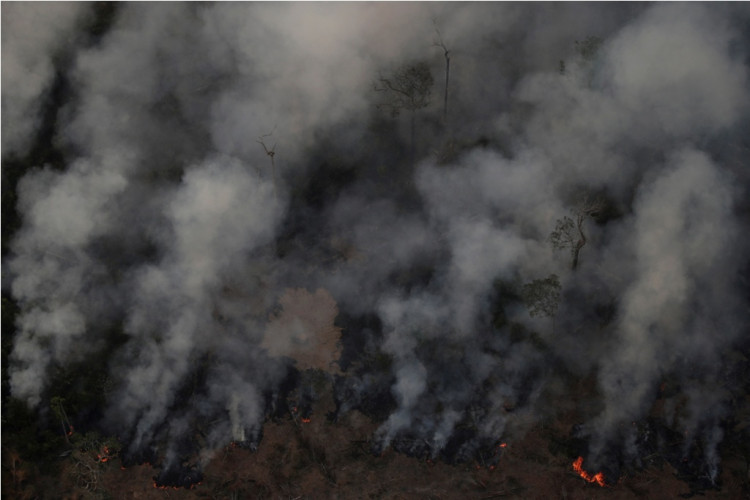The Amazon rainforest's indigenous peoples have a clear message for decision-makers ahead of next global environment conferences: conserve the rainforests to avoid a global "apocalypse."
Gregorio Mirabel, the Coordinator of Indigenous Organizations of the Amazon River Basin (COICA), has urged developed nations attending the COP26 climate meeting in Glasgow, Scotland, to work with indigenous people to safeguard the Amazon rainforests.
Mirabal, a 54-year-old member of the Wakuenai Kurripaco tribe, claims that oil and mineral exploitation, as well as pollution and deforestation for agriculture and livestock, have already wiped off 17% of the forest.
He says the indigenous tribes of the Amazon fight every day to prevent an "apocalypse."
"There are two scenarios," Mirabal says. "One is the apocalypse, with no return."
"People will run out of oxygen, the planet will warm up in 50 years, by two or even three degrees. Life on this planet will not be possible if the Amazon disappears," the leader said.
The other scenario, according to Mirabal, is that "children can bathe in this river, learn about what is here, see the trees, the biodiversity, see this macaw fly. This is the scenario we propose to the world if it helps us protect 80% of the Amazon."
A draft of the proposed new UN biodiversity accord contains a goal to guarantee that the advantages of using local genetic richness "are shared fairly and equitably," as well as to support conservation and sustainable use of those resources.
The draft also proposes increasing the share of financial and other benefits that traditional knowledge holders receive from the greater use of their ideas and indigenous species.
In advance of the two UN summits, more than 150 civil society and indigenous organisations, as well as academics from more than 50 nations, signed an open letter calling on world leaders to put human rights at the center of environmental policy.
Defending indigenous rights is seen as especially important for the preservation of the Amazon, and indigenous leaders expect that the subject will receive more attention during the COP26 UN climate change meeting.
Deforestation is on the rise in Brazil, which has the largest percentage of the Amazon rainforest, as a result of increased cattle ranching and soy farming, as well as illicit logging.
Since right-wing President Jair Bolsonaro assumed office in 2019, deforestation in the Brazilian Amazon has increased dramatically.






